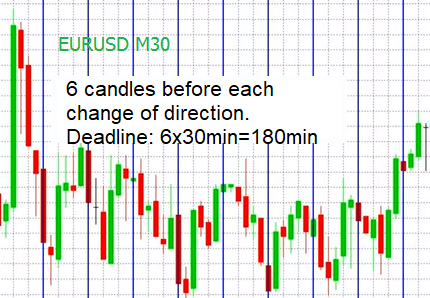Proper Money Management for the successful trader
Premise
We often get warnings such as this:
“Although the level of risk in binary options is fixed for each transaction, you can always lose your initial capital. It is highly recommended that traders choose a proper money management strategy (capital management) that limits consecutive losses and avoid the total collapse of capital. “
This is an important announcement, as it is often underestimated and sometimes even considered with negative consequences for the trader. We see, therefore, to talk about money management in practical terms, and possibly useful tricks to the average trader (we do not turn to the super experts) and if it is necessary for our trading.
Money Management Trading
We are often asked: What is the payout percentage of your strategy?
Obviously it would be easy to present a positive number but we must ponder on this: What sense does this question do?
The results depend on many factors, we would all be rich if a truly successful strategy existed, or else we and every other sellers would had closed our doors and kept the secret.
One of the key aspects that influence the results of our business as traders is how we cover the correct money management. In this case we are not referring to an economic plan that tells us how to possibly earn, but the control of the trader with the aim of reaching the percentage of provided winnings (and often “promises”).
Experts advise to follow a proper money management during trading in binary options.
Follow the Rules
What behavior should traders have in relation to their investments?
Of course there is no single answer and it depends on many factors such as a risky appetite, capital employed, the time available, and so on. We are often told that the sum to be invested in any single operation should be limited to 5% of the capital and that its increase, this percentage can be gradually reduced.
Hence the need to calculate the correct amount of the initial deposit. Without going to analyze the different cases, unfamiliar for each of us, let’s have a proper money management trader practice of trying to expose the topics useful to the average trader we know, based on the contacts of a site.
A trader should deposit as little as possible. We may never be able to risk money, or to trust a broker too much. With the minimum allowed, if the platform were to play tricks, or the broker does not meet its requirements, we may decide to change it.
The maximum loss of money will be decided by the minimum investment which would permit a certain number of trade according to the low capital, in the case of negative development, it must be limited. At the worst possibility, after analyzing the reasons for the lack of success to deposit again, switch from the same broker to a different one.
In any case, this negative experience will lead us to believe that there requires a certain discipline, which will result in following a strategy of money management. The aim of this is to stop operating as soon as certain negative conditions are met, regardless of what has already been won or lost under the money management.
Appointing a Money Management
We now decide what type of money management to follow, what kind of behavior to adopt in order to prevent series of continuous losses leading us to closing accounts and resulting in psychological distress.
-
The Authoritative
This is probably the simplest strategy, where each trader would choose to be limited to a fixed number of daily trading, so pick, for example, only 10 acceptable losses a day. A bad run would likely be recovered at the next day, if one has a competent system at hand. But this limit must not be exceeded in any circumstance and refrain from further trading should be heavily strict.
-
The Judicious
This method is one which is much more widely favored at limiting the number of losses, which leaves the possibility of having to trade for longer periods if things go well.
The rule is followed by a streak of losses which would be deemed acceptable to a certain budget (“three” red closures for example). This number is determined based on our available capital in the account. In the event that the negative cases reaches these simultaneous “three” losses, the trader must stop completely and resume the next day.
It is to prevent a market trend that seems incomprehensible which could render all strategies ineffective.
- The Attentive
This is to stop the trading after suffering losses that, in succession or less, have reached an X percentage of what was executed until that time.
Suppose as an example, X = 30%. This means that our percentage of positive results (winning ratio) must be maintained above 70%. Since we know that even a 60% success rate can result to profits anyhow, we might as well decide to choose a negative percentage of 40.
Of course, this strategy leads us to regularly check and calculate the percentage of results whenever each trading is carried out.
-
The Mediator
Suppose we can overcome the critical moment at the beginning of a trading which visit us with a surplus in the account. We will trip the rule that from the stop to the operations after the capital has been reduced to a dangerous level, it can still be fixed at 50%.
For example, after you have opened an account with a deposit of $250, and managed to double the balance of $500, we may decide to stop immediately after that capital returns to $250.
In case that the trading runs smooth and the bill “rises” even higher up to $1000, we will stop only in the unlikely event that it would fall back to $500. More careful percentages, for example 20 or 30%, is recommended to the prudent traders.
-
Trader in the Trap
There are many money managements and each of us can hold their own. It would be positive to limit a loss to 10 trades a day.
But beware: there is also the undisciplined who, using no rule of capital controls, angrily persists in seeking to recover the capital lost, until he finds himself with the income completely dried up!
With boiled emotions, even the world’s greatest trading systems are useless.
The amount of the account at any given time forces us believe that that capital is all ours which makes it hard to accept that it could reduce to nothing.
-
Invitation
If you have a money management that you feel good about and would like to compare it with that of others, you can describe it in the comments at the bottom below.
You might receive useful tips and criticisms to improve your strategy.
Therefore, we wish that the next winning trades will comply with the rules of the Money Management!




